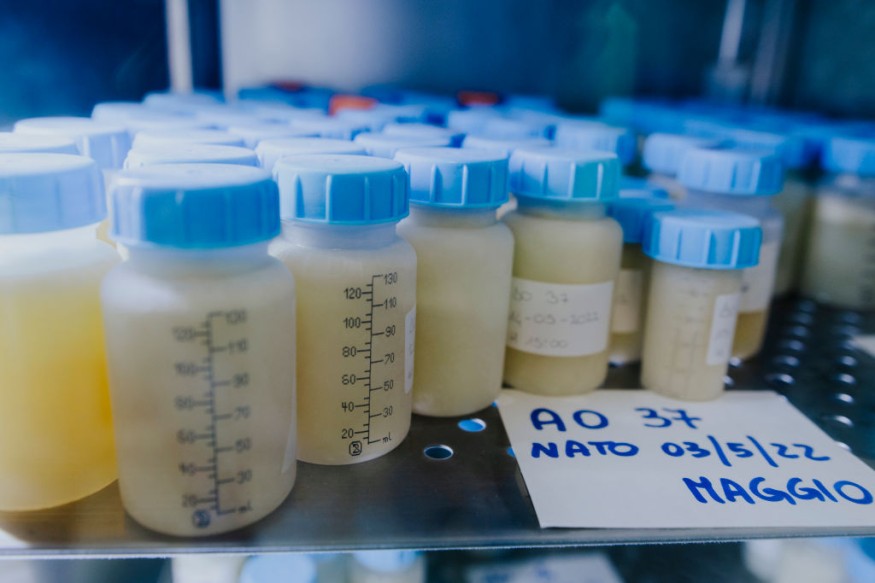
A new study reveals that expectant mothers have an increased likelihood of not being able to breastfeed their babies for long if they come into contact with dangerous polyfluoroalkyl substances (PFAS), commonly referred to as forever chemicals.
Cause Of Concern
The research team monitored the length of lactation of over 800 new mothers in New Hampshire and discovered that higher PFAS exposure has the potential to cause lactation to slow down or stop completely within six months.
Lead author Megan Romano, an epidemiologist at Dartmouth University, described the results as "cause for concern."
"For all women who are exposed, there's a little bit of a decrease in the amount of time they breastfeed beyond delivery," Romano said.
While major pediatric groups and the World Health Organization suggest breastfeeding for up to two years and beyond, only approximately one-third of American mothers continue to do so after 12 months.
Although financial problems and other variables might also be at play, Romano said that the findings may contribute to the explanation of why many American women cease breastfeeding early.
Although scientists are still figuring out the actual mechanism causing breastfeeding periods to shorten, PFAS are known endocrine disruptors.
The study looked at five distinct PFAS chemicals and found that the two that are regarded to be the most prevalent and dangerous had the strongest association were PFOS and PFOA.
Transfer Of PFAS
Different studies have been conducted to test the effect of PFAS on women and their children.
The data from the Shanghai Maternal-Child Pairs Cohort published last May, has highlighted the levels, health concerns, and transport protein binding capabilities of PFAS in early life. These artificial substances, which are present in breast milk, cord serum, and mother serum, may be harmful to an infant's development.
Under the direction of a research team from Fudan University's School of Public Health, the team carefully examined the effects and pathways of distribution of these persistent chemicals, offering crucial information on how ubiquitous they are from conception to breastfeeding.
In the study, 16 distinct types of per- and polyfluoroalkyl substances (PFAS) were analyzed using high-performance liquid chromatography-tandem mass spectrometry on 1,076 mother-child pairs. Perfluorooctane sulfonate (PFOS), perfluorooctanoic acid (PFOA), and 6:2 Cl-PFESA were found, with PFOS being the most common in mother serum, along with their detection rates and median values.
It is noteworthy that the efficiency of PFAS transfer from the placenta to the fetus was higher than that of nursing, indicating a larger likelihood of these chemicals crossing the placenta and building up in the embryo.
The study also used molecular docking to simulate how PFAS will bind to transport proteins and influence their distribution and bodily transportation. These results clearly indicate that there should be stricter rules for PFAS use and more evidence for PFAS harmful impacts on human health and the environment should be collected.
"Understanding the pathways and risks associated with these chemicals can lead to better regulatory policies and protective measures for the most susceptible among us," said Yaqi Xu, lead author of the study.
PFAS, a group which consists of about 16,000 types of compound, are utilized to provide items with resistance to water, heat, and stains. They are called "forever chemicals" because they are shown to be in humans for a long time and they don't decay naturally.
Moreover, the chemicals are responsible for a vast list of serious health problems such as cancer, thyroid disorders, liver disease, birth defects, and decreased sperm counts.
Related Article : Forever Chemical Products To Be Ban in France, Claims To Be Harmful To Health And Environment
© 2026 NatureWorldNews.com All rights reserved. Do not reproduce without permission.





